Hello and welcome to another audio version of Burnt Toast!
This is a newsletter where we explore questions and some answers around fatphobia, diet culture, parenting, and health. I am Virginia Sole-Smith. I'm a journalist who covers weight stigma and diet culture, and I'm the author of The Eating Instinct and the forthcoming Fat Kid Phobia.
Today, I am delighted to be chatting with Alyson Gerber, author of the critically acclaimed novels Focused, Braced, and, most recently, Taking Up Space. Alyson, welcome!
Alyson
Thank you so much for having me.
Virginia
I'm so excited to talk to you. I have followed your work for a long time, so this is a real treat. So why don't we start with you just telling us a little bit about yourself?
Alyson
Sure. As you said, I'm an author. I write middle grade books for readers 8 and up, and the adults who care about them, so teachers and parents, doctors, anybody who's interacting with kids of this age. I really started to write for this age group because I experienced a lot of trauma right around sixth, seventh, and eighth grade. I wore a back brace to treat my scoliosis, which was the beginning of my journey to body image struggles. And at the same time, I had undiagnosed attention deficit hyperactivity disorder (ADHD), and I cover those topics in my first two middle grade novels, Braced, about scoliosis, and Focused, about a girl, a chess player, with undiagnosed ADHD.
And Taking Up Space was really the novel that I pushed off writing because I knew how difficult and challenging it would be for me to dig into it. I started writing it when I was pregnant with my daughter and I had a pretty significant disordered eating relapse. I really wanted to talk openly about what it feels like to struggle under the diagnosis. To really be facing food struggles and body image and not have a way to talk about it, I think it can become very complicated. Because there isn't a medical diagnosis for disordered eating, it becomes something that people don't talk about. So I'm always curious and interested in—and most of my books really cover—the topics that we'd rather brush under the rug because we're ashamed of them, for whatever reason.
Virginia
Right. That's such an important point. What Sarah struggles with in the novel isn't necessarily what would meet criteria for an eating disorder, but it is really serious and really difficult and way too common. You're giving voice to that struggle, which I think we are all inclined to normalize or push away or have reinforced by people in our lives, by diet culture, all that kind of stuff. I was curious because I knew the first two novels were very personally inspired: It sounds like with Taking Up Space, the topic is something you've really dealt with, as well. Are any of the characters drawn from your own life? Or was it more taking the issue and putting it into a fictional world?
Alyson
That's a great question. For all three of my books, actually, I really wrote the story of the main character from the heart of what I experienced. So from the ups and downs and the pain of feeling misunderstood and feeling alone and unsupported and confused about whether or not what I was going through was worthy of attention and deserving of comfort—even conversation—and deserving of support. And so especially with Taking Up Space, I really drew on that experience of being confused about what are the rules of eating. Are there rules of eating? And how do you learn how to eat and feed yourself?
Sarah's journey to understand that she has all the tools she needs within herself by listening to her body, that really has been a lifelong journey for me. And so the emotional arc of the character is from my real life, and the plot of what happens to her as this incredible basketball player whose family identity is about basketball—she wants to be part of it and she wants to continue to play at an advanced level because it's so important to her identity—that is fiction. I never played basketball. I was not a basketball star.
Virginia
Wow. I am a complete non-athlete, so I can't say how authentic it was, but it felt very authentic to me—the team culture, the coach relationship. I thought you did such a nice job. I think something that a lot of parents with kids in sports struggle with is how body stuff gets handled in sports. We think about it a lot with gymnastics or cheerleading, which are very aesthetic-based sports, but even in sports like basketball, there's so much emphasis on your body being a certain way to be good at the sport. And the way Sarah was struggling with, “Is my body changing? And do I have to fix that in order to be good at my sport?” I thought that was so, so important to articulate that struggle.
Alyson
Thank you. I actually purposely picked a sport that wasn't endurance or aesthetic because it is such a problem in all sports and I wanted to really showcase that this is an issue that's impacting a big part of the population. It's not just the stereotypes. I wanted her to be outside of that. And I played sports. It was sort of forced upon me. This is one of those things where I went to a school where it was a required, three seasons of sports.
Virginia
Oh god.
Alyson
I was also not an athlete. I was very much a benchwarmer. But one of the things I took away—and I brought that to Braced because Sarah is a soccer player and chess, in a lot of ways, is a team sport—was there was something about being on a team that I loved. I loved the orange slices and I loved the cheering and I loved being there for your friends and wanting to win together. That is the one takeaway of being forced to play sports. It was really not great, but—
Virginia
You had that experience.
Alyson
Exactly, and I'm able to use it in a way that really benefits me now. That's one of the things I love about writing: You get to imagine you're good at something you really can't do at all.
Virginia
I love that. I think I played field hockey for two days, and then I was like, “we have to run a lot at practice and I'm not going to do that.”
Alyson
Also, there are a lot of rules in field hockey. I was always in the wrong place.
Virginia
It was very stressful. I literally lasted less than a week on the team. I was like, Nope, not for me. But I was a theater kid, and so I can relate to that sense of the group experience of building something and creating something as a team. You have that in the theater world too. It is a really special experience and it's definitely the real strength of athletics and activities like that.
Another thing I love about the book is the mother-daughter relationship. This must have been pretty tough to write. I obviously don't want to give away spoilers about the book because I want everyone to go read it, but the mom is struggling quite a bit and you really show how her struggles impact Sarah in really major ways. But they also have this beautiful relationship. They have these things they can really bond over. They love the same kind of murder mysteries and there is a closeness to their relationship, as well as this distance that's happened around food and body. And I thought that was so beautifully done because I think so often, in the way we talk about eating disorders culturally, there's a lot of mom-blaming. And in the way they're often portrayed in fiction and movies or books or whatever, the not-really-examined evil mother figure comes up a lot. So I loved that you steered so deliberately away from that.
I wanted to hear a little bit about your thinking there. Was that a conscious choice? Did you have to resist the urge to make Sarah’s mom the bad guy? How did you think about developing their relationship?
Alyson
I'm so glad that this is not a video, I should say, because you just made me cry in everything you said. I'm just totally tearing up because I think you said that so perfectly.
I think there's so much mom-blaming and I think there's so much black-and-white thinking around mother-daughter relationships: that we have a good relationship, or we have a bad relationship. And I think mother-daughter relationships are really complicated, and especially for characters like Sarah and her mother, I really intentionally wanted her not to be the bad guy. And I wanted the reader to understand that she might be making bad choices as a parent, but those bad choices are because she's also a victim of diet culture. She's a victim of her own experience, and a victim of the time, of growing up in a time where it wasn't as easy to go to therapy. It was not as socially acceptable to talk about your feelings, and so those feelings got buried. Even now, when both mothers and daughters can have access, I think there are places, there are families, there are communities, where it's less accepted. And I hope that's not always going to be the case, but I think for a long time, it probably will be the case.
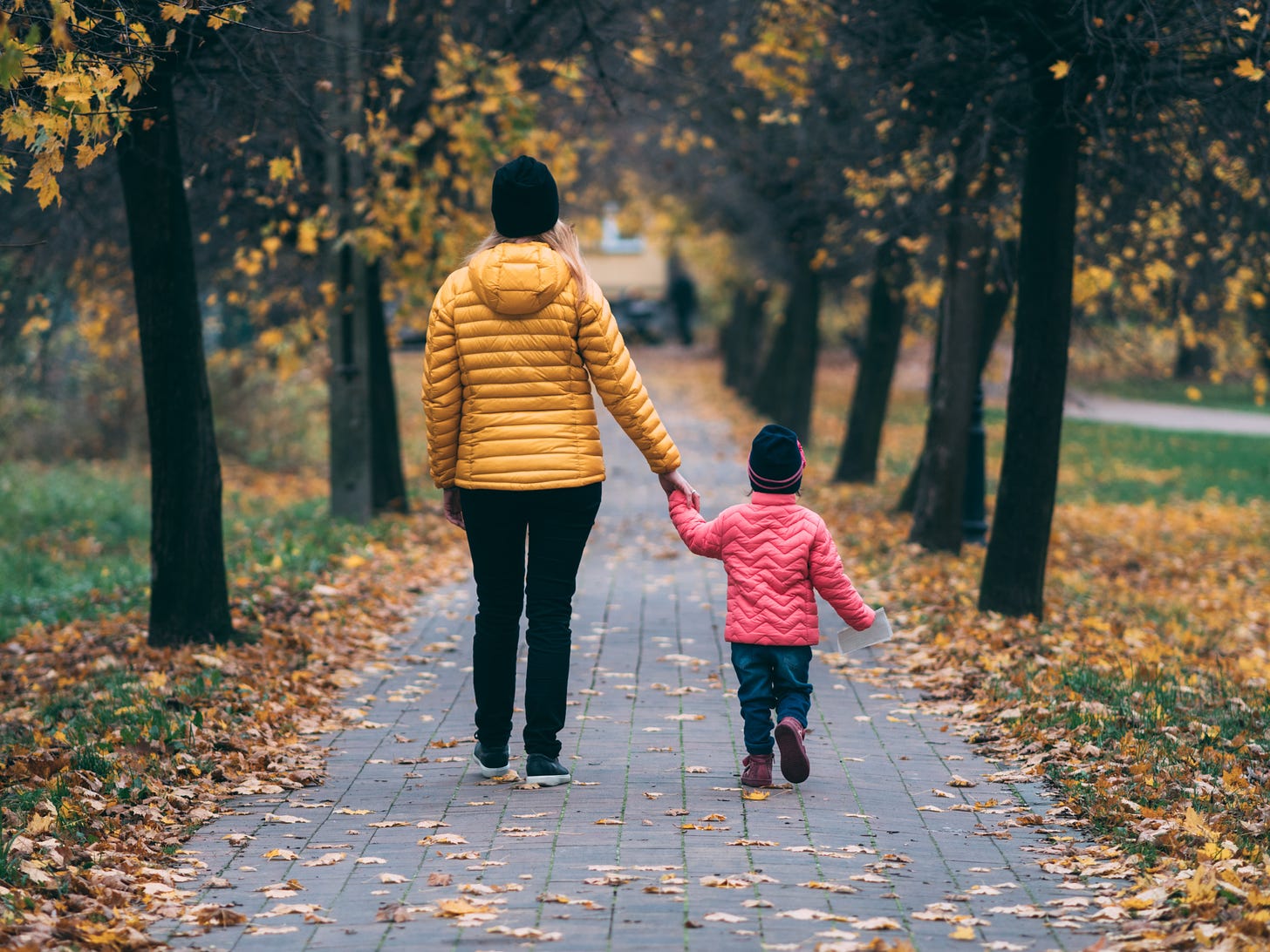
And so when you have a parent who has complicated feelings that aren't being addressed, those feelings are going to come out in their relationship, and that's where the relationship gets complicated and messy. But it doesn't mean that it's not an amazingly close relationship, like you just said. You can be an incredible parent and also be somebody who has struggled with something in your life that makes that piece of your relationship really hard. And I think we have to get rid of the black-and-white thinking around parenting because it's just not.
I'm a parent now, so I can say, "I'm such a bad mom today!" But then I have to consciously say, "No, I was challenged today and this is how I managed it, and it wasn't my favorite day that I ever had parenting, and I'm going to try to do better tomorrow." And even cutting that black-and white-thinking in the way that we talk to ourselves as parents and as kids, just rethinking it and reframing it for ourselves so that we can really see it for what it is, which is that you can be an incredible parent and have a real deficit in one area, a real blind spot.
And there's also room to always change and grow, and that's one of the things—and I don't want to give anything away—but one of the open pieces of the book that I wanted to keep in place is that some things are resolved and some things aren't, and the door, I think, is left open. And that's one of the special things about middle grade is you can give hope without resolving everything and putting a bow on it. And you can always work on it, you know?
Virginia
Yeah, and the closeness that they have is in these other ways. Because this question comes up all the time with my listeners or my readers of, “How do I talk to my own mom about this? Or, Am I a bad parent because I'm struggling?” And it's this other closeness that you have—bonding over murder mysteries, or whatever it is—that can be the foundation of a lot of healing in this area, if the person is in a position to do the work—and not everybody is. That's the other thing. Not everyone, as you're saying, has the resources, is in a culture that's going to be encouraging of that.
So it can be both a really complicated thing because it's like, how can you love this parent so much when they are also doing things that are harmful to themselves and to you? But it can also be a really cathartic, beautiful opportunity for growth. I think you pack so much nuance into their interactions. It was very powerful to read, and I have a feeling for a lot of parents reading it, it will be, at times, painful, but also there's something powerful about seeing that struggle play out that way.
Alyson
Thank you. I hope it's a conversation-starter for parents and kids, and even teachers and kids. I think there's real space in the classroom to talk about this and say, How can we listen to each other better? How can we respond more thoughtfully to each other?
What you just said about a parent might not be willing to work on it and do the work, but are they willing to listen to your feedback? And can they do some of the work? Maybe it's not only for themselves, but can they do that for you? And so I think it's more complicated than just, yes, they can heal themselves, because not everybody is in a place to be able to do that. But if they can give you the space you need and the safety you need, then that can often really help.
Virginia
Absolutely. Another thing I thought about a lot while I was reading the book, because it's something I struggle with a lot in my own reporting when I read about eating disorders and disordered eating, is the level of detail to include or not include. It felt like you had probably made some very thoughtful choices about, you know, you have to tell a good story and you have to bring the reader into the experience.
But my first job out of college was at Seventeen Magazine, and whenever we reported on eating disorders, I was like, “are we just teaching these kids how to have eating disorders?” Because we were including way too much detail about the vomit and all those sort of things. But as I've continued to work in this area, number one, I'm more thoughtful than I was, I think, at that point in my career. But I also think there's a reality in which kids who are struggling with this need to feel seen, and that can mean seeing descriptions of behaviors or thought patterns that may be quote-unquote triggering, but also may be like, Okay, I'm not the only one with that thought. Or, I'm not the only one who was doing that behavior. So how do you think about that issue? Because I'm sure you also struggle with this question.
Alyson
I think this was the hardest part of writing this book and the thing I wrestled with the most. As a middle grade author, one of the things I always think about is, How am I keeping all my readers safe? That means the reader who has never interacted with this, the reader who is struggling with an eating disorder, the reader who is struggling with constantly being bullied because of fatphobia. I'm trying to think about everybody in the room, and also let that go at some point to write the story. But then when I go back and revise, they're often on my mind in the language that I choose, especially in this book, in the detail that was given.
I wrote this book many times. In the first version, there were more details. Sarah's size was more clear. And as I revised, I really started to get rid of that because I realized it was only hurting the story. We know from some indicators that Sarah is a straight-size person. You know the fashion term. We know that because she doesn't consider things like her chair and her uniform. There's no question about the sizing for her uniform. There are other things that would come up if that weren't the case, but other than that, I really tried to eliminate all those pieces because I didn't want readers walking in comparing themselves to Sarah.
Virginia
That was really smart.
Alyson
That's something that I really struggled with, and have always struggled with: Am I as sick as this person? That sort of comparison, really, at the lowest points, was really hard for me. I know that that can be a struggle for a lot of people, so I wanted to keep those readers safe. And there's no scale in the book, which is also another choice, and I could have made a different choice. I tried to make a different choice at some point. Every choice that felt like the thing you think of as a stereotype when you think of an eating-disorder book or movie, I ended up getting rid of because it didn't serve the story. Truly, it's not the story I wanted to tell.
This is a story about somebody who doesn't value themselves and who has learned to value herself based on outward things, based on her success at basketball, based on the way that she looks. And I wanted her to be able to recognize that and say, I really need to value myself based on myself, on who I really am. That, for me, has actually been the biggest struggle in overcoming all of my many issues. But in particular, self-worth has been the thing. And I think at the root of a lot of eating disorders is this: Does society value me? Does my job value me? Do my friends value me? How do I fit into the world? And the truth is, it's really how do you value you that matters the most. And it took me a long time to really understand that.
Virginia
And you're completely right. If you had included the more cliché descriptions of her getting on a scale and tracking numbers and that kind of thing, that wouldn't have helped tell that story. That would have just been the more Lifetime-movie version—or Seventeen-Magazine-article version—of this story that isn't particularly helpful because it doesn't encourage readers to take these questions deeper. It doesn't help kids think beyond the behaviors about the underlying struggle, which I think Taking Up Space does so well. Because you do have other people in her life—the coach and various other people—who are able to reframe things for her and help her understand these larger questions. And that's really effectively done and, I think, contributes to that sense of safety that you're talking about, as well, for readers.
Alyson
The other thing I thought of when you were sharing that is that I really wanted the reader who had no experience with this—the person who maybe thinks, Well, why don't they just eat? Why can't you just sit down and eat a piece of pizza? What's the big deal? I don't understand—to really be able to understand and to really be able to empathize. I taught over the course of the pandemic virtually, and I met with a lot of middle school kids who felt that whatever their pain, their mourning, their loss that they were experiencing, because it wasn't as big as other people's, that it didn't count.
So they really talked down their pain and dismissed their own pain and made themselves feel bad for feeling bad when, really, everybody's pain counts. There's a spectrum of pain and you deserve support wherever you are. And I think that's something that took me a really long time to understand: that somebody can have it worse, and I can also still need help.
Virginia
Yes, yes. That is a tricky spot, for sure.
Alyson
And I can also be grateful for everything I have. You can be so thankful for the things that are going well, and also feel a lot of pain and be struggling in big ways. And I think as an adult, there's this tendency for adults to be like, "It'll get better. It's going to be fine. This isn't that big of a deal." But if a kid is telling you this is a big deal, that they feel something, it's a big deal, and it doesn't feel like it's going to get better. And they do need help.
Virginia
Absolutely.
Alyson
Even if we don't think that they need help, they sometimes do, and they need to know that. So that's one of the things I hope readers get out of Taking Up Space is a sense of empathy for other people and kindness for themselves.
Virginia
And another thing, I'm realizing, that I think is so effective about the book is because you didn't focus in the traditional way on her weight, you were able to show that the struggle really isn't about, Are you losing a lot of weight? Or, Is your body changing? It really is this internal struggle. And I think that's so important because, going back to what you were saying earlier about, often, we feel like we're not as sick as someone else, one of the main ways that plays out is when an eating disorder doesn't result in this extreme weight loss that we expect. And, of course, the majority of eating disorders don't do that. And so all these people's struggles get swept under because you don't look like the cliché super-emaciated person.
So I loved that you showed that, and you showed, too, that the tinkering with disordered eating can have pretty immediate effects on someone's ability to function and how they're feeling moving through their day, and all of that. That felt really powerful for kids to read, both either if they're going to see themselves in it, or if this is a newer concept to them, to understand that the stakes are quite high, even when you're just in the "early stages" of something.
Alyson
Definitely.
Virginia
I know you said your daughter is almost 4. I don't know exactly when you wrote this because books always take forever to come out, but did becoming a mom change how—and as a fellow mom who's a writer, I hate when we get reduced to being mom writers; I'm not trying to do that—but because you write for kids, and you write about these issues, I'm just curious if your relationship to the work or to this book has changed now that you are a mom of a daughter who may someday be dealing with some aspects of this.
Alyson
So interesting. I started writing this book when I was pregnant with my daughter, and I think I was really thinking a lot about home and what it means to be a parent and what it means to create a sense of home, and I do so much home-creation in my storytelling. Because for 8 to 14 year olds, home is really the center, even though friends are slowly becoming the center. But it's where you come back to for safety. I thought a lot about what does it mean to have a home that's safe, emotionally and physically, and a place where you could really be yourself.
And so I've given that a lot of thought in my parenting, and also I think it's really impacted my writing, and changed it. It's made me see some of the things that were safe for me in my own home growing up that maybe I wouldn't have considered before as being safe. It made me rethink things a little bit. And it made me realize some things that maybe I hadn't seen as being problematic.
And I'm working on a mystery—it's very mysterious!—right now. The character's sense of home and sense of self is a major part of the story. And so I've been thinking about it a lot. It's interesting. The way that my daughter interacts with me has changed the way that—because now I'm seeing it from the other perspective. I'm not writing from the adult perspective interacting with kids, but now I am living the adult perspective interacting with kids. And even though Juliet is younger, I'm still imagining and thinking a lot about how this will play out. The three-nager years really showed me a lot about what I'm in for.
Virginia
Yes, that is a real phase, for sure, having done it twice. Definitely is a phase. I do think there's something to, like, the dynamics you're dealing with now will be the dynamics. Of course, kids change so much, but there are certain throughlines, for sure.
Alyson
And there are certain things that I find that will be a pain point for me. I'll feel the pain point as a parent and be like, Oh, I need help. I can't do this on my own. And seeing that from the other side is really interesting.
Virginia
I was just thinking, with the mom character we talked about, she has such a richness to her, and I think your experience being on the other side maybe helped inform that too. Because it's sometimes left out—and it's understandable because kids don't see us as fully formed people, nor should they have to. But I think it's great for them to read books where the parents are flawed and struggling and fully formed people because that's useful for them to start to experience.
Alyson
Definitely. A big part of my writing process is really thinking about each character as having their own arc and writing a little bit from each—sort of journaling from their perspective so that they feel like fully formed people. So I understand where they start at the beginning of the book and where they end up and how they get there. It's not just the main character. And the adults are always the hardest, which makes sense.
Virginia
Yeah, it does. Okay, so a question I always love to ask fellow writers is, Where do you do your writing? Tell me a little: Do you have a workspace? What do you love about it? What do you hate about it, if you don't love it? I love hearing about where people write.
Alyson
So I live in Brooklyn and I have an office in my home here. I love it because it's my own space and I can close the door and shut everybody out, and it's quiet. And I really need that. I really need quiet, although I do like to draft at a coffee shop. So I have missed that a lot during the pandemic, hearing other people typing. There's a YouTube channel where you can hear other people typing. So I've done a little bit of that, which has been helpful. And the thing I dislike about my workspace is that it's—well, I like that I can see out into the front of the house, but also other people can see in. So I get scared often because I'm in another world when I'm writing and then the person delivering the UPS package will knock on the window and wave to me, and I go flying.
Virginia
That's so funny. Yes. My office is on a side where I can't see our door, which means I miss every UPS package, which is its own hassle. But it is nice from that perspective of being startled out of your work mode because it's so hard to get back to it, too, once you've broken the flow.
Well, you mentioned you're working on a new mystery. Anything else you're excited about right now? Whether it's a new writing project, something else new in your life. My kids started school today. That's what I'm excited about.
Alyson
That is exciting.
Virginia
Oh god, it's so exciting.
Alyson
My daughter's about to start school next week, which is very exciting. I'm really excited about this book that I'm working on. It's taken over my brain, which is great. And it means that it's going to work and it's singing. At first, I always feel like I'm putting pieces together and I'm trying to layer the onion back together. It works or it doesn't work, and it's working. And it's working in a way that I really wanted it to work.
Virginia
That's so satisfying.
Alyson
And just like the characters in Taking Up Space, I'm a huge mystery fan. I'm sort of obsessed, actually. I've watched, like, every British mystery. That's the one thing about the pandemic is I've actually gotten to watch—there were a couple of old ones that were on my list that I got to.
Virginia
Which ones?
Alyson
“Vera.” I had really wanted to get through that.
Virginia
I've never seen that. My mom loved it, I think.
Alyson
They're a little bit older, like “Foyle's War,” which is very long. It's nine seasons long. I was able to get through that.
Virginia
Well, that's nice because you've got a lot. I hate when something's only two or three seasons.
Alyson
So it's both exciting because I'm loving the book, but also exciting because this is a genre that has always interested me, and those were the books that I read most growing up and the books that kept my attention. So this is keeping my attention.
Virginia
That's awesome. And will this be middle grade, as well, or are you doing an adult mystery?
Alyson
No, it's middle grade. And I'm hopeful that it will be a series. I'm trying to work to figure out how to do that.
Virginia
This is very exciting. All right. Well, when you're ready to talk more about that, you'll have to come back and tell us all about it because that sounds awesome.
Alyson
Perfect. I would love to.
Virginia
And tell listeners where we can find more of your work and follow everything you're doing.
Alyson
So my website is my name, alysongerber.com, and I am basically everywhere @AlysonGerber. So on Instagram @AlysonGerber. On Twitter @AlysonGerber. And you can find all my books also through the Scholastic website. Scholastic is my publisher.
Virginia
Awesome, and I will link to all of that in the transcript. Thank you so much for coming on. This has been such a great conversation. I'm just so thrilled there are writers like you in the middle grade space doing these books because we really need more. This is a question I'm asked a lot: What can my kid be reading? And it's so great there's finally more than just Blubber to tell them about, so thank you so much.
Alyson
Totally. Thank you so much for having me. I really appreciate it.
Virginia
And thanks to all of you for listening to Burnt Toast. If you like this episode and you aren't yet subscribed, please do that. If you are a subscriber, thank you so much. Please consider sharing Burnt Toast on social media or forwarding this to a friend.
Our transcripts and essays are edited and formatted by Jessica McKenzie, who writes the fantastic Substack Pinch of Dirt. Our logo is by Deanna Lowe, and I'm Virginia Sole-Smith. You can find more of my work at virginiasolesmith.com or come say hi on Instagram or Twitter. I am @v_solesmith. Thanks so much and talk to you soon!

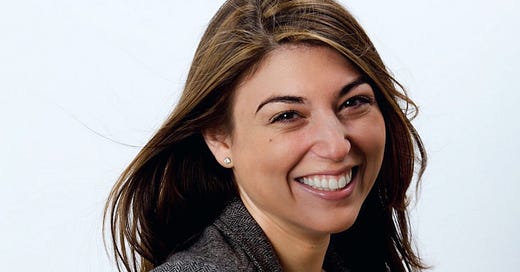

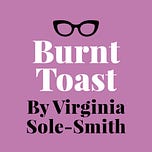


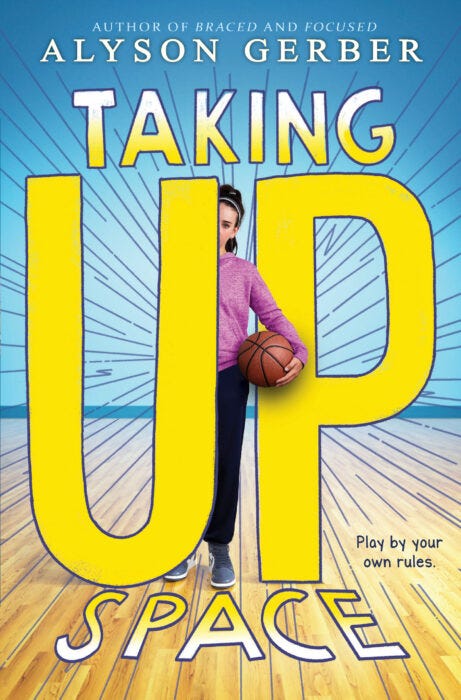

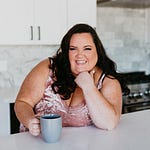
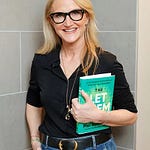
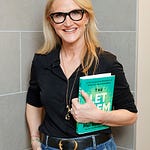
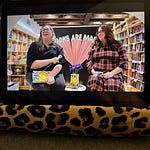

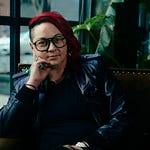


Share this post